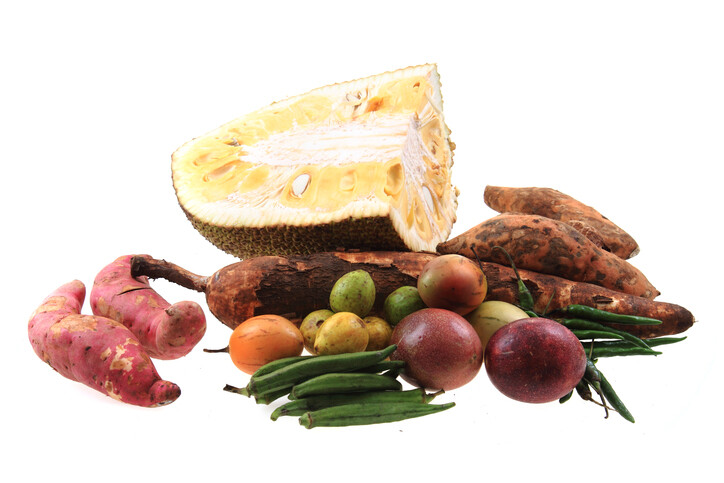According to the National Foundation for Cancer Research (NFCR), “Despite seeming as polar opposites of one another, root vegetables and exotic fruits have very similar health benefits.”
Science Daily defines a root vegetable as, “underground plant parts used as vegetables. They are called root vegetables for lack of a better generic term but include both true roots such as tuberous roots and taproots, as well as non-roots such as tubers, rhizomes, corms, and bulbs.” Healthline lists some of the healthiest root vegetables as: onions, sweet potatoes, turnips, ginger, beets, garlic, radishes, fennel, carrots, and celery root.
The website, fruitsinfo.com, explains that exotic fruits are, “that which are not native and cultivated outside, nor available at their place of origin.” Most exotic fruits are tropical. WebMD suggests the following exotic fruits to add to your grocery list: passion fruit, star fruit, acai, mango, papaya, pomegranate, guava, and kiwifruit.
According to National Day Calendar, “Root vegetables are a great way to provide complex carbs and starch, they’re high in fiber, they can help you lose weight, they contain tons of vitamins and minerals, and even anticancer antioxidants.” Regarding exotic fruits, “These fruits contain large amounts of antioxidants, vitamins A, C, iron, and phosphorus.” Jackfruit, sapodilla, and dragon fruit are also delicious exotic fruits with incredible health benefits.
Consult your healthcare provider to discuss any dietary changes. To schedule an appointment with a healthcare provider at any of our convenient Primary Medical Care Center community clinics, you may visit our website at www.primarymed.com, or call (305)751-1500 for our Miami-Dade clinic, or (954)289-0000 for our Broward clinic.
Sources: https://www.fruitsinfo.com/exotic-fruits.php
https://www.nfcr.org/blog/root-vegetables-and-exotic-fruits-month-superfoods/
